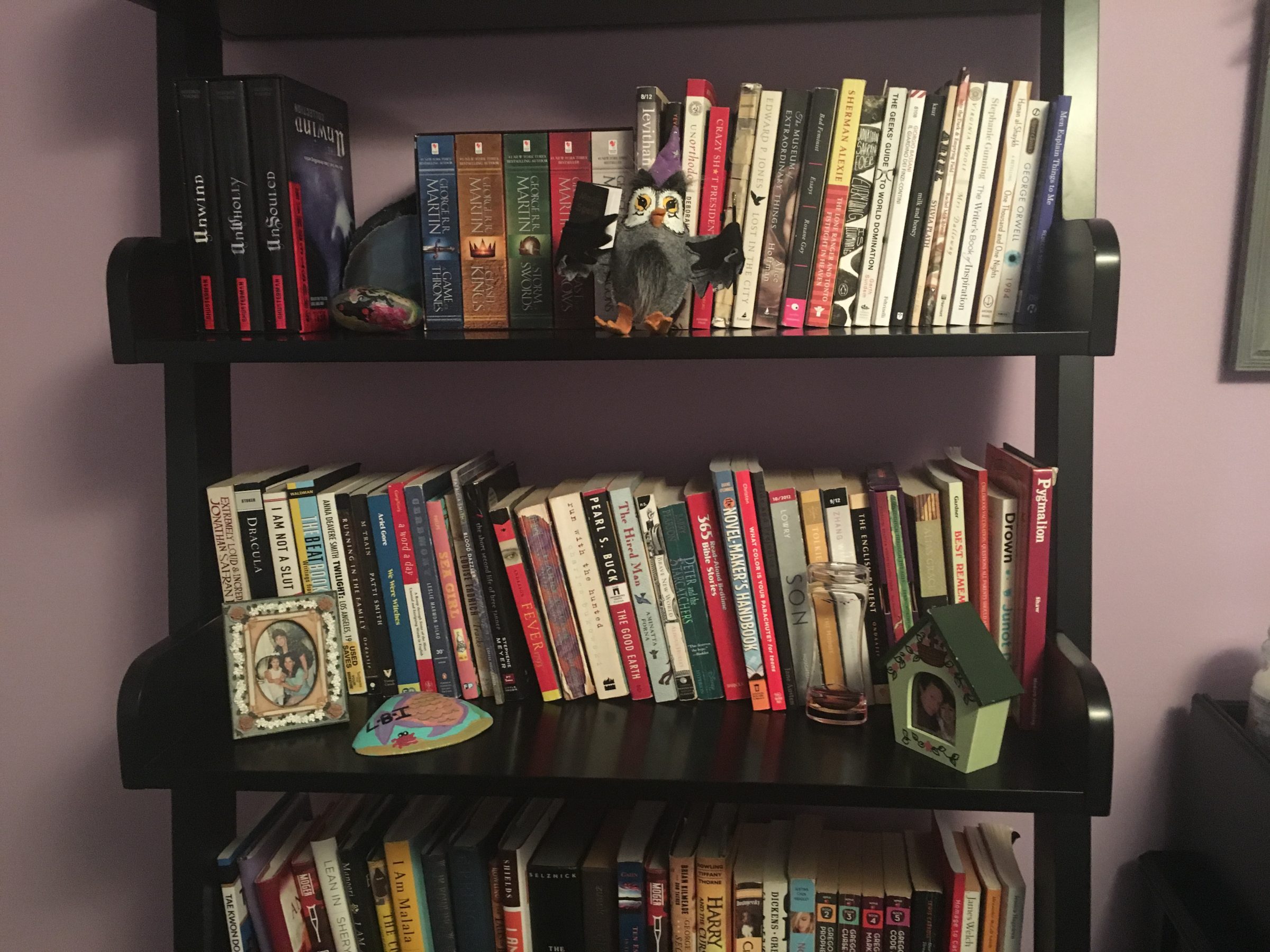Nothing beats Harry Potter (which I’m sure author J.K. Rowling is tired of hearing).
But seriously, after Rowling finished writing the Harry Potter series, the lack of a new book every few years left a vacant space in my preadolescent life. Sure, she created Pottermore and supplied loyal fans with tidbits here and there that augmented the world she created, but it just wasn’t enough.
And then, The Casual Vacancy came out. I know it’s been out for a few years, but I just got around to reading it after picking up a $2.99 copy at my local consignment store (sorry, J.K.). Naturally, I had many questions and expectations (fair and unfair). What would this one be about? Would it be as good as Harry Potter? Could it possibly live up to everything I imagined?
Thematically, it’s very different from Harry Potter. There’s no magic, no supernatural creatures, no epic battle between the forces of good and evil. Instead, the novel is set in a small British town called Pagford, an idyllic place with white picket fences and private schools. All the characters are connected to each other in the intricate web that makes up Pagford society.
Yarvil, a neighboring town, is Pagford’s mortal enemy. Their historic feud stretches back nearly a century. A clueless and unsuspecting landlord sold a piece of property between the two towns, allowing housing developments to encroach upon Pagford, the town forced to foot the bill. What sprung up came to be called the Fields, a low-income neighborhood that has fallen into disrepair due to lack of funding. Many Pagford residents are prejudiced against the Fields, believing that all who live there are lazy drug addicts relying on government funding.
When Barry Fairbrother, forty-something-year-old Pagford Parish Councilmember, dies of a brain aneurysm at the beginning of the book, a casual vacancy—caused by a member dying in office—is left behind. And so the struggle to fill the seat begins.
A brutal nativist battle takes place on a small-town stage. Some Pagfordians want to reassign the Fields to Yarvil because they don’t want to support a neighborhood of supposed junkies. And they especially want to close Bellchapel Addiction Clinic because they think it’s a waste of money to fund an “ineffective” program. Others, such as Fairbrother, opposed these measures. So Fairbrother’s old friends take up the banner in his name to accomplish what he tried so hard to do in his lifetime.
Each chapter travels between the points of view of neighbors, friends, and members of the community, exploring how they are interconnected and weave together. Friends and enemies run against each other, and everyone wonders who will ultimately take the council seat.
In typical J.K. Rowling fashion, the novel has a very intricate plot with many distinct characters, and the reader can feel the threads as they are placed properly for a plot that will weave itself together as the book progresses.
In the beginning, it wasn’t exactly easy to read as I tried to get all the characters straight in my head, but Rowling did a great job of making each character so unique that it all began to make sense a few chapters in. The whole book, though it delves into difficult topics, retains a sense of humor and irony characteristic of Rowling’s work as well.
The obvious but not overstated parallels to current nativist resurgences demonstrated Rowling’s intelligence and deft ability to weave social problems into the fabric of a text in a way that’s accessible to readers and proves a complex point—struggles against “invaders” or “foreigners” aren’t nearly as black and white as many believe.
Yarvil is described as “dirty,” “invading” Pagford’s school with their different accents. At one point, one character refers to the population as full of “scrounges, addicts, and mothers whose children had all been fathered by different men.”
In some ways, the characterization wasn’t wrong. Of course, no one from Yarvil “invaded” anywhere; they simply attended school and attempted to participate in society. But Rowling pulls no punches when describing the grit and poverty of the Fields. Houses are in extreme disrepair, with tires stacked in front yards and graffiti plastered across buildings.
The face of the Fields is the Weedon family, under severe scrutiny from social workers. Mom Terri is addicted to heroin and incapable of really serving as a parent to her children. 16-year-old daughter Krystal has a tendency for truancy and outbursts in school, and she acts as a mother to her three-year-old brother Robbie, developmentally delayed and still wearing diapers.
Howard Mollison, influential town figure, Councilmember, and advocate for reassigning the Fields to Yarvil, said that the Fielders were choosing to live the way they did: “There was nothing, as far as Howard could see, to stop the Fielders growing fresh vegetables; nothing to stop them disciplining their sinister, hooded, spray-painting offspring; nothing to stop them pulling themselves together as a community and tackling the dirt and the shabbiness; nothing to stop them cleaning themselves up and taking jobs; nothing at all. So Howard was forced to draw the conclusion that they were choosing, of their own free will, to live the way they lived, and that the estate’s air of slightly threatening degradation was nothing more than a physical manifestation of ignorance and indolence.”
On the other hand, Howard believes Pagford “[shines] with a kind of moral radiance… as though the collective soul of the community was made manifest in its cobbled streets, its hills, its picturesque houses.” He clearly attaches cleanliness (affluence and the resources to maintain a town) to moral purity, while he condemns addiction and poverty as dirty and unconscionable.
Rowling develops uniquely horrible characters as the story progresses. I don’t think there’s one purely likable character. Rowling deftly transitions between writing believable adults and teenagers, all with their own horrible personality quirks or faults, all making horrendous mistakes that ultimately blow up in their faces. Her characterizations leave the reader disgusted and enthralled at the same time.
There’s Samantha, the bored housewife disgusted with her life and longing for adventure who lusts after 21-year-old boyband star and makes out with a 16-year-old boy, the same age as her own daughter. There’s Fats Walls, who bullies classmate Sukhvinder Jawanda by sending her photos of apes and hairy women on Facebook every day. There’s Simon Price, abusive father and low-level scammer, and many others.
Rowling is a master of perspective. One minute we are inside the head of a particular character who is thinking about one of their flaws, and the next minute we enter the mind of the person across the room, who remarks in passing on the very same flaw the first person was obsessing over.
The real twist comes when one teenage boy decides to get back at his father, a candidate for the council position, by hacking the council website and posting a dirty secret on the message board, under the username The_Ghost_Of_Barry_Fairbrother. This triggers a series of digital attacks on candidates posted by other frustrated teenagers, airing their parents’ dirty laundry for the whole tiny town to see.
At the end, an awful and tragic twist took my breath away. Rowling is a master of the unexpected gut punch. Her books always seem to rise to a skillful fever pitch that have me gripping the front and back covers in anticipation.
The way this novel sucked me in felt familiar. It brought back nights under bedroom covers speeding through Harry Potter books like my life depended on it. This book was no masterpiece of that caliber, but it was as good a follow-up novel as any, and I’d recommend it to anyone interested in an absurd look at humanity’s capacity for cruelty.





